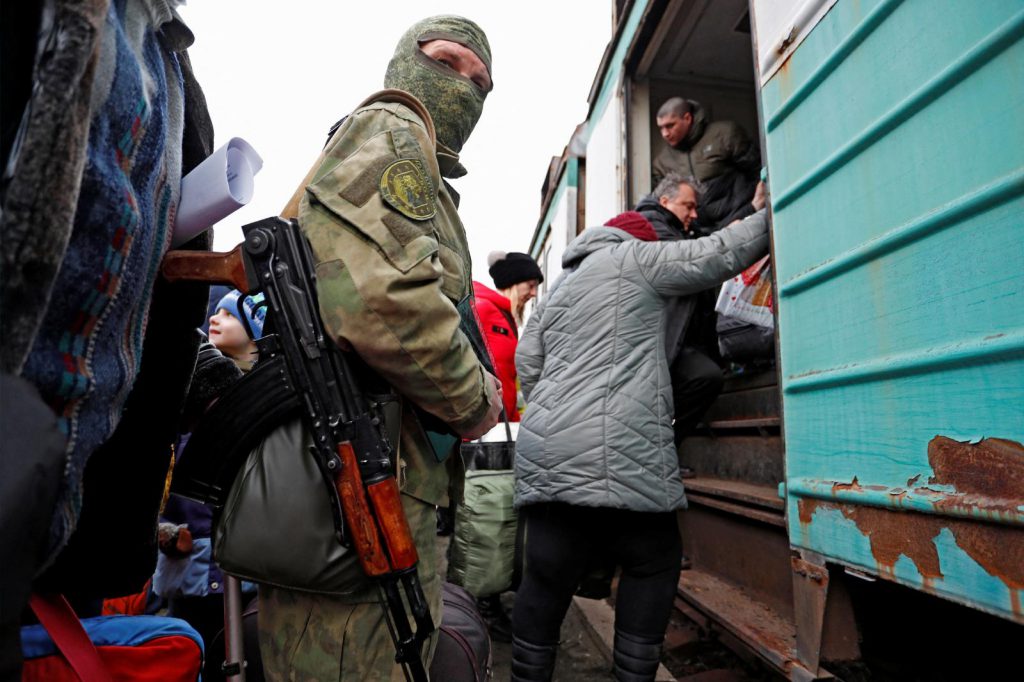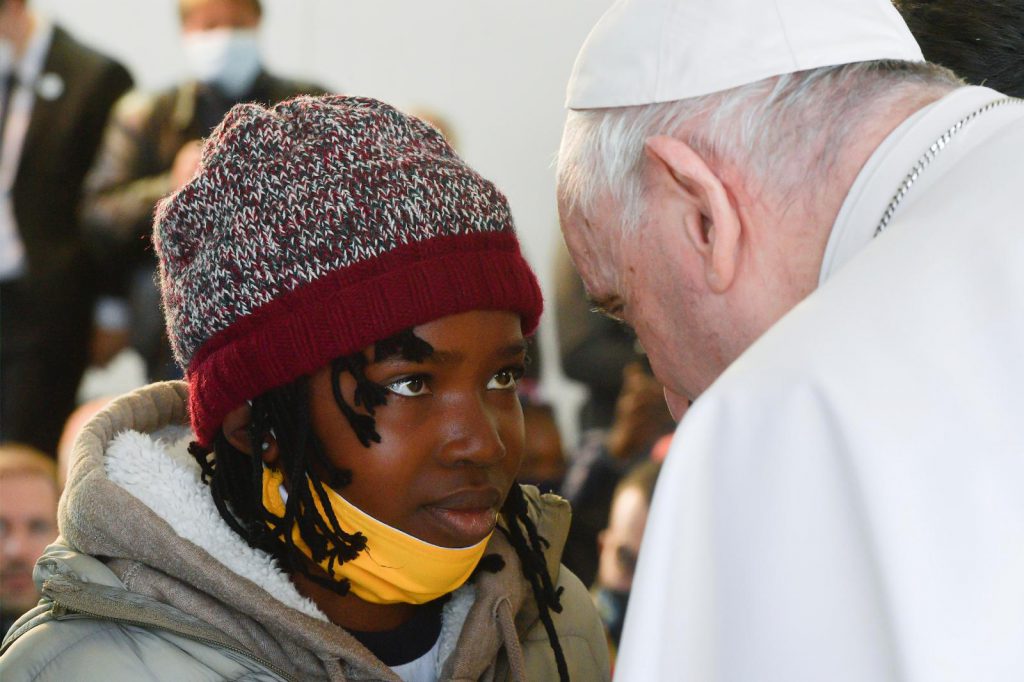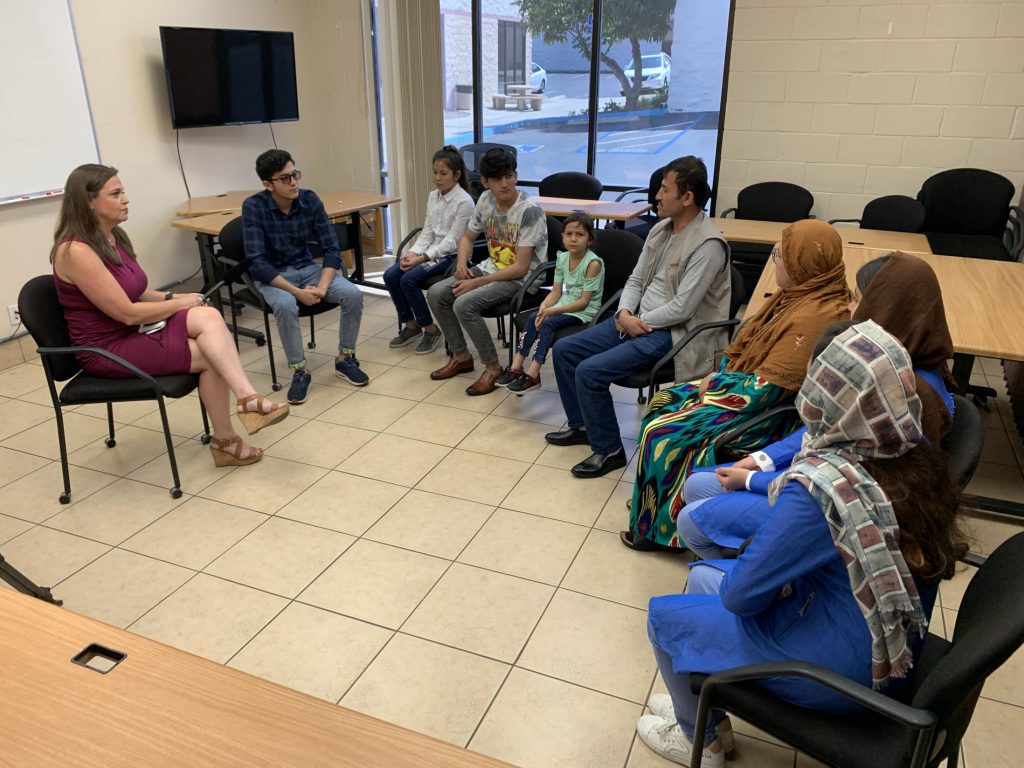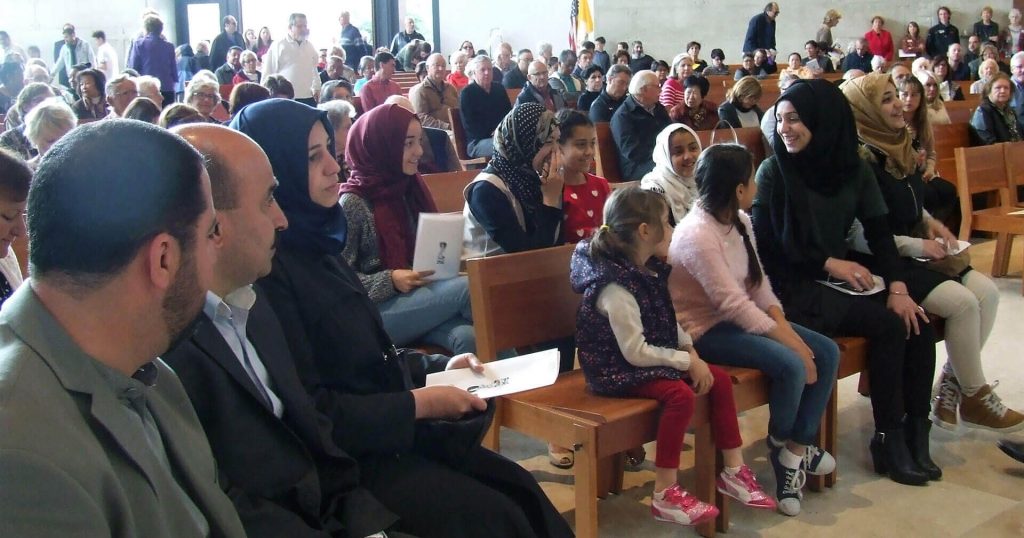By Carol Glatz
VATICAN CITY — Safe, organized, legal and sustainable migration is in the interest of all countries, Pope Francis wrote.
“If this is not recognized, there is a risk that fear will erase people’s future and justify those barriers against which lives are shattered,” he said in a written address to refugees and to the volunteers and organizations who helped welcome and integrate them in Europe.
Speaking to the refugees and those who have helped them, the pope said, “Thank you for promoting this work of welcoming which is a concrete commitment to peace. Welcoming is the first step toward peace.”
The Vatican audience hall March 18 was filled with individuals and families from many countries at war or affected by severe humanitarian emergencies, such as Syria, Iraq, Afghanistan, Somalia, South Sudan, Nigeria, Congo, Libya and Ukraine.
The pope only read a few passages from his prepared text, but spent about 25 minutes making his way, seated in a wheelchair, through the hall greeting guests and exchanging many hugs with enthusiastic children. One small boy insisted the pope accept his gift of a stuffed Spider-Man doll.
The migrants and refugees came to Italy and other European countries thanks to an initiative started in 2016 to create “humanitarian corridors” in which volunteers and organizations on the ground in areas of conflict identify people who are especially vulnerable and arrange for their safe and legal passage to communities prepared to take them in. They also help with housing, education and other forms of assistance.
The Rome-based Community of Sant’Egidio established the project together with the Federation of Evangelical Churches, the Waldensian church of Italy, the Italian branch of Caritas and the Italian bishops’ conference.
The project was started to help people avoid dangerous journeys across the Mediterranean Sea in unsafe vessels, to prevent exploitation by human traffickers and to give priority to those in especially precarious conditions. More than 6,000 people have been offered legal passage and integration through the project since 2016.
In his spoken remarks, the pope thanked the organizations for their generosity and creativity and the commitment shown by governments for welcoming newcomers.
In his written address, the pope mentioned the recent shipwreck near Cutro, Italy, in which nearly 90 migrants, including children, died. “That disaster should never have happened and everything possible needs to be done to ensure that it will not be repeated,” he wrote.
“Humanitarian corridors build bridges that many children, women, men and older persons fleeing from unstable and gravely dangerous situations cross in order to arrive safely, legally and with dignity, in their host countries,” he wrote.
“Still, much effort is needed to expand this work and to open even more legal migration routes,” he wrote. “Where political will is lacking, effective models like yours offer new and viable avenues.”
“Safe, orderly, regular and sustainable migration is in the interest of all countries,” he added.
This approach, he wrote, “points a way forward for Europe, to avoid its remaining frozen, fearful and lacking vision for the future.”
The pope praised the project’s emphasis on properly integrating people in host communities, and he thanked those who generously offer their homes, resources and help, writing that “you represent a beautiful face of Europe, one that is open, not without some sacrifice, to the future.”
Addressing those who left their homelands, he underlined his own history as a son of a family of immigrants and wrote, “Your good example and industriousness help to dispel fear and apprehension about foreigners.”
Jesus showed the way when He said, “I was a stranger and you welcomed Me,” the pope wrote. It is a path everyone must take “together and with perseverance.”
In his written text, the pope also told those who have fled Ukraine that “the pope does not give up seeking peace, hoping for peace and praying for peace. I do this for your gravely afflicted country and for other countries affected by war.”









